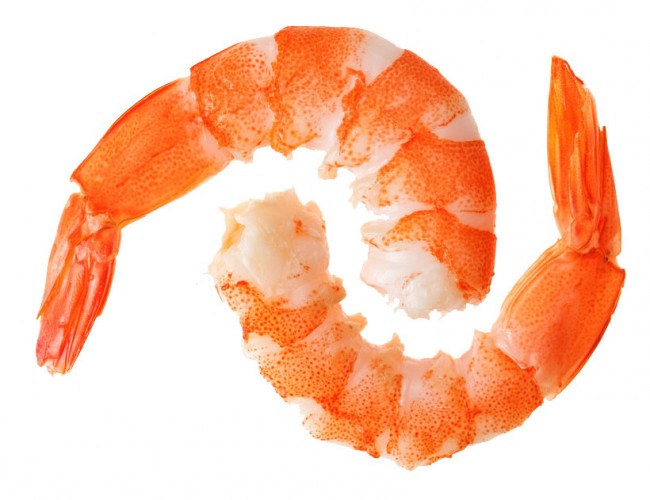Have you ever experienced a tingling sensation in the mouth, or an outbreak of hives after eating shrimp? If so, you may be allergic to shellfish. Shellfish allergy is one of the commonest types of food allergy and can result in life-threatening anaphylaxis.
The condition may develop suddenly in an adult who has previously eaten shellfish without any reaction. If you think you may be allergic to shellfish it is really important that you seek a proper diagnosis from a medical professional.

Types of Shellfish
There are two types of shellfish: crustaceans, such as shrimp, lobster, crayfish, crab and prawn, and mollusks, which include oysters, mussels, crabs, scallops, octopus, squid and both land and sea-snails. Some people with shellfish allergy are allergic to both, although some people who are allergic to crustaceans do not react to mollusks. However you should not make any assumptions without proper testing.
Don’t confuse shellfish allergy with fish allergy. Shellfish and scaled, finned fish are biologically different. Although somebody may be allergic to both shellfish and fish, just as they might be allergic to both fish and peanuts, the two allergies do not appear to be linked.
Symptoms of Shellfish Allergy
Symptoms often occur shortly after eating or otherwise coming into contact with shellfish or shellfish products. Do not expect all of the following symptoms to be present. Each time you have a reaction the symptoms may be different.
- Stuffy nose
- Hives (raised red itchy spots possibly all over the body)
- tingling in the mouth, a tight throat or feeling of a lump in the throat
- Difficulty breathing, a repetitive cough which will not stop
- Vomiting, diarrhea
- Dizziness, fall in blood pressure, weak pulse
- Change in skin pallor
- Fainting, loss of consciousness
- Anaphylaxis
Anaphylaxis
Anaphylaxis is a severe, often sudden reaction where the body goes into shock. It can be life-threatening and should always be treated as a medical emergency. If anaphylaxis is suspected call an ambulance immediately.
Symptoms may include general distress, difficulty breathing, tightness or a lump in the throat, a fast pulse, a drop in blood pressure, fainting and loss of consciousness. Victims sometimes describe feeling a strong sense of doom.
A person who has had only a mild reaction to shellfish in the past is still at risk of anaphylaxis in the future.
Those who have been diagnosed as at risk of anaphylaxis will have been prescribed equipment for self-administration of Epinephrine (known as Adrenaline in the UK and Australia) in the form of an EpiPen/ Auvi-Q etc., for immediate use once the first symptoms appear. Follow medical advice on how and when to use it. Always carry your auto-injector with you. If a child has been prescribed an auto-injector make sure that her teachers and other carers know how to use it. Regularly check the expiry date on your auto-injector and ensure that you have at least two doses of epinephrine with you at all times.
Diagnosis of Shellfish Allergy
Shellfish allergy can be difficult to diagnose, as it has such a wide variety of symptoms. Your symptoms may be different each time you have a reaction.
If you have suffered any of the above symptoms after eating or being contact with shellfish, or fumes from shellfish being cooked you should consult your doctor who may refer you to an allergy specialist. The specialist will want to know about all occasions where you reacted to shellfish in the past. Blood-tests and skin-prick tests, where a small amount of the substance is injected into the skin to observe the reaction, may be done. The allergist may decide to do a food challenge test where, under closely controlled medical supervision, you are fed a small amount of the suspected allergen to observe your body’s reaction. The food challenge test should only be dome under medical supervision with emergency medication and equipment at hand.
Management and Treatment
Once you have been diagnosed with shellfish allergy it is important to avoid all shellfish and products which may contain shellfish. You should also avoid areas where shellfish are being cooked as the fumes from cooking may contain the proteins to which will produce a reaction. Some people are so sensitive that they can react if cooking utensils such as frying pans or barbeques which have been used to prepare shellfish are used for other food eaten by the individual.
Luckily, packaged foods containing shellfish are required by law in most countries to make that clear. Always read the labels on packaged food. Be particularly careful with fish-stock, seafood flavorings, sushi, surimi, flavored chips and prawn crackers.
Shellfish can be found in some non-food products such as plant fertilizers, pet food and cosmetics.